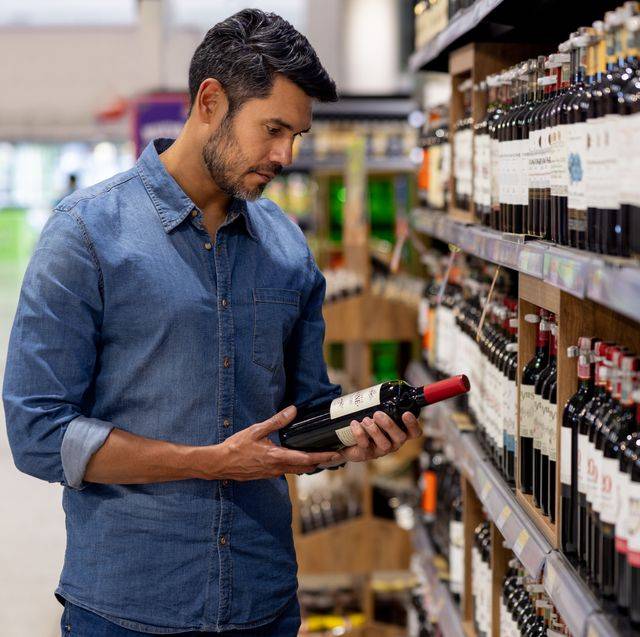Alcohol sales decline in Europe as consumers shift to health-focused and innovative beverages
Younger generations drive demand for functional drinks, sugar-free options, and visually appealing products amid changing lifestyle trends
2025-09-03

Alcohol sales in European retail stores have dropped by 1.7% over the past year, according to a recent analysis by Circana titled “The Silent Revolution of Beverages.” This decline, which represents 285 million fewer liters sold and a €1 billion decrease in value compared to the previous year, marks a significant shift in consumer habits across Europe. The report covers the period up to June 2025 and highlights how changing preferences are reshaping the beverage market.
While overall beverage consumption in hospitality venues such as cafes, restaurants, and pubs remains stable, with about 50 billion drinks served annually, the retail sector is seeing a clear move away from traditional alcoholic beverages. Instead, there is growing demand for non-alcoholic and functional drinks. The out-of-home beverage market in Europe is now valued at approximately €157 billion, reflecting consumers’ willingness to spend on drinks that offer more than just refreshment.
This summer, European consumers have shown a strong preference for visually appealing and health-oriented beverages. Drinks like ube lattes, matcha iced teas, homemade lemonades, and cold-fermented beers have become popular choices. Many of these beverages are designed not only for taste but also for their appearance and potential health benefits. Functional drinks that claim to improve concentration, reduce stress, or aid digestion are especially popular among younger consumers aged 18 to 34. Influenced by social media trends and wellness influencers, this demographic seeks out drinks with bold colors and creative ingredients.
Functional iced teas, ginger shots, and CBD-infused sodas are gaining traction in cafes across Europe. These venues have become spaces where personal expression, wellness, and social media content intersect. Edurne Uranga, Vice President of Foodservice Europe at Circana, notes that beverages today serve as personal statements and lifestyle enhancers. She points out that young Europeans view their drink choices as reflections of their identity—refreshing, purposeful, and highly shareable online.
The decline in alcohol consumption is not limited to retail. In European hospitality venues, alcohol sales have fallen by 6%. The traditional “rosé all day” culture is giving way to kombucha nights and sophisticated non-alcoholic options. This shift suggests that consumers are prioritizing healthier choices that align with new lifestyle trends.
Sugar consumption is also under scrutiny. Modern soft drinks made with stevia, cane sugar, or natural fruit juice are gaining popularity due to their functional benefits. Many now include prebiotics, vitamins, or ingredients that support gut health. Sugar-free beverages lead this trend as more Europeans seek to control their sugar intake—especially those using GLP-1 medications for weight management. Support for sugar taxes is growing as well; 41% of Europeans favor such measures to encourage healthier options.
Innovation has become a key driver in the European beverage market. Thirty percent of consumers say innovation is their main reason for trying new brands. Beverage manufacturers are responding by introducing new flavors, formats, and functional benefits. In the six largest European markets (EU6), innovative food and drink products accounted for 5.1% of total sales value over the past year. The United Kingdom leads with 7%, followed by the Netherlands at 6.9% and Germany at 5.5%. This focus on innovation reflects rising consumer curiosity and demand for wellness-oriented products.
Energy drinks are quietly expanding their reach despite being consumed by only one in three Europeans. Consumption of energy drinks in restaurants and bars has grown by 9%, outpacing both soft drinks and juices. Retail sales of sports and energy drinks have also increased across Europe: consumer spending rose by 7.7%, units sold grew by 4.3%, and volume increased by 3.2% over the past year. In just the last three months alone, sales value jumped by 13.3% while volume rose by 7.1% compared to the same period last year.
The UK’s energy drink market is evolving rapidly with products featuring natural caffeine, no added sugar, and “clean energy” blends. These beverages are no longer limited to athletes or gamers; they are now marketed as daily concentration boosters and functional fuel for everyday life.
At-home experiences are also influencing beverage sales strategies among retailers and brands. Wine tastings at home, cocktail kits, and barista-style drinks are creating new opportunities for consumer engagement outside traditional venues. Collaborations between brands—such as protein-infused drinks or non-alcoholic cocktails—are attracting attention from health-conscious shoppers.
Ananda Roy, Senior Vice President of Global Leadership & Strategic Insights at Circana, explains that blurring category lines is becoming essential for growth in this competitive market. Alcohol brands are expanding into low- or no-alcohol options to appeal to younger consumers focused on health, while soft drink brands are entering spaces traditionally dominated by alcohol. This approach is opening up new consumption occasions and helping brands stand out in a crowded marketplace.
The data from Circana’s report shows that European beverage trends are shifting rapidly toward health-consciousness, innovation, and personal expression—both inside hospitality venues and at home—reshaping what people drink and why they choose it across the continent.
Founded in 2007, Vinetur® is a registered trademark of VGSC S.L. with a long history in the wine industry.
VGSC, S.L. with VAT number B70255591 is a spanish company legally registered in the Commercial Register of the city of Santiago de Compostela, with registration number: Bulletin 181, Reference 356049 in Volume 13, Page 107, Section 6, Sheet 45028, Entry 2.
Email: [email protected]
Headquarters and offices located in Vilagarcia de Arousa, Spain.